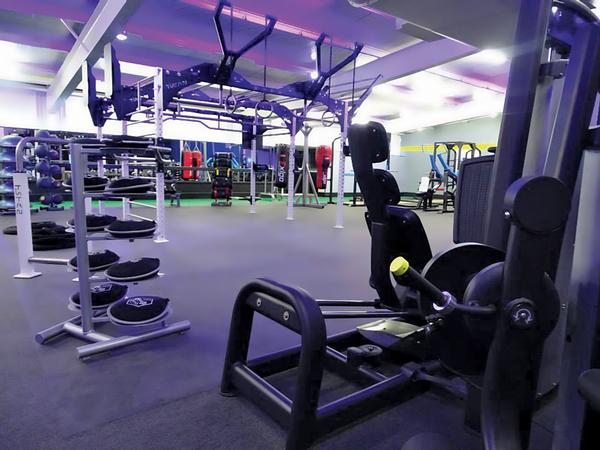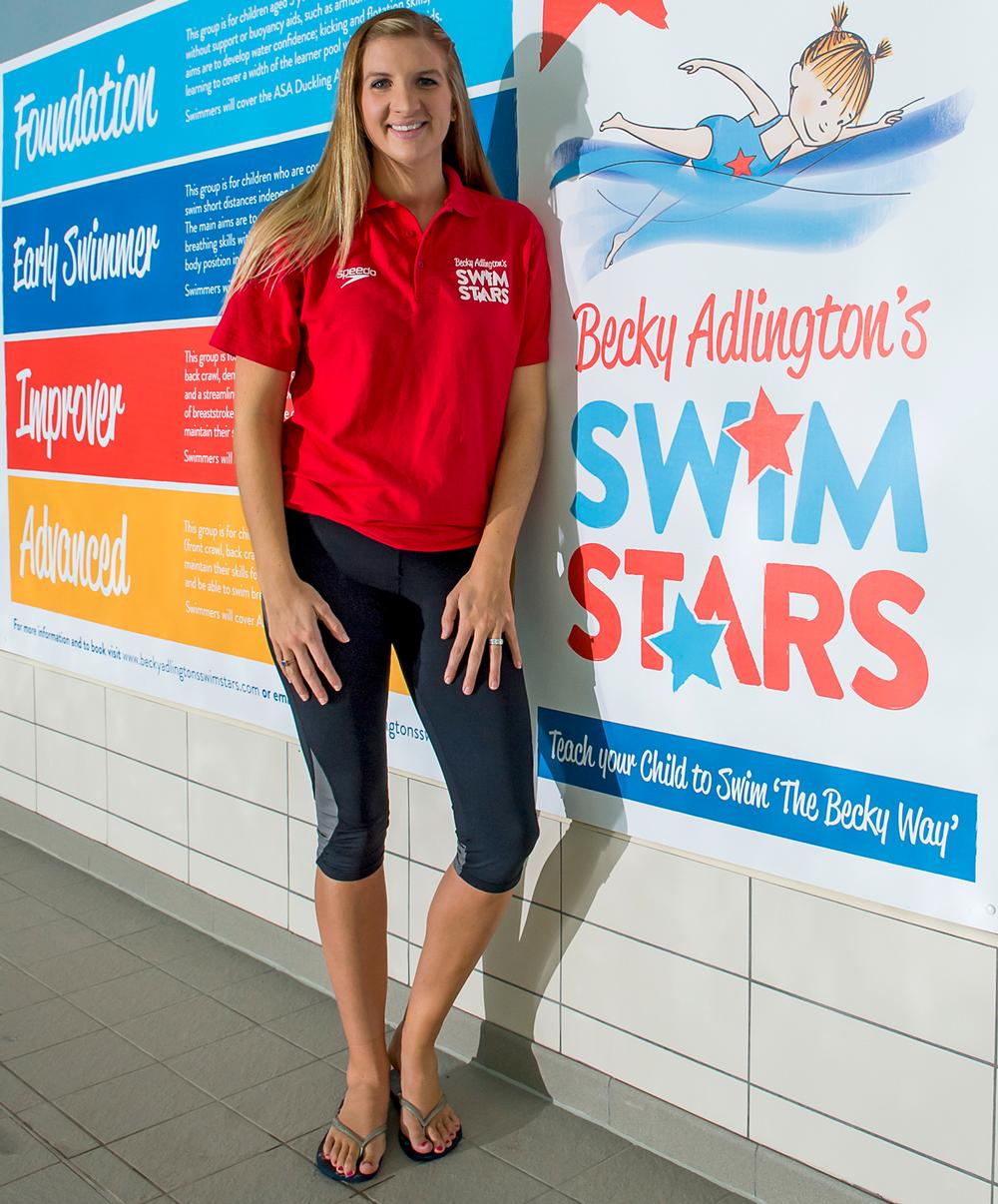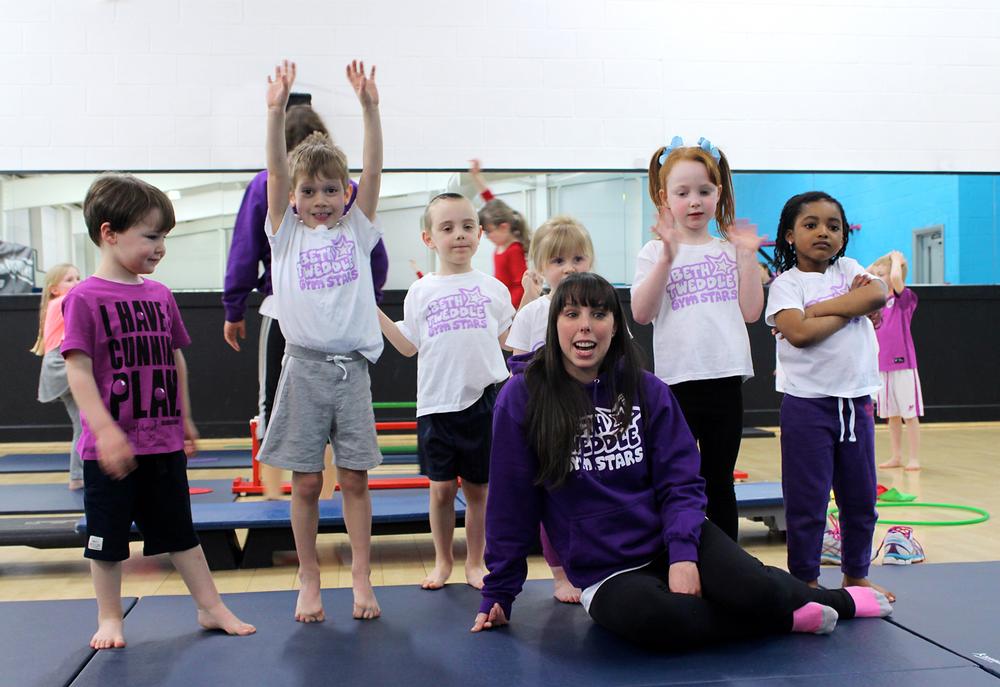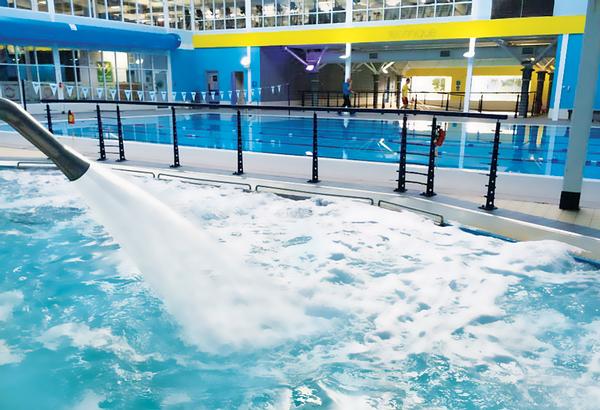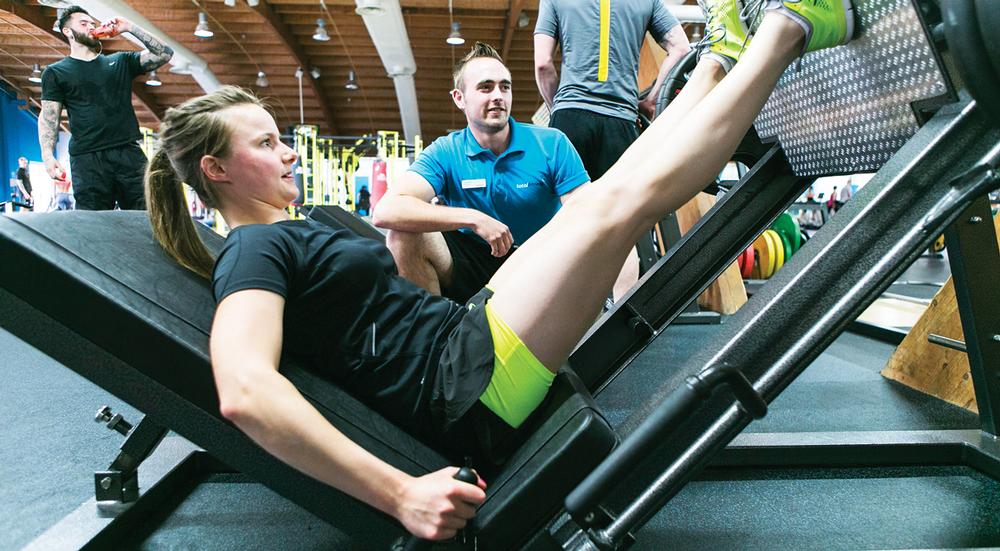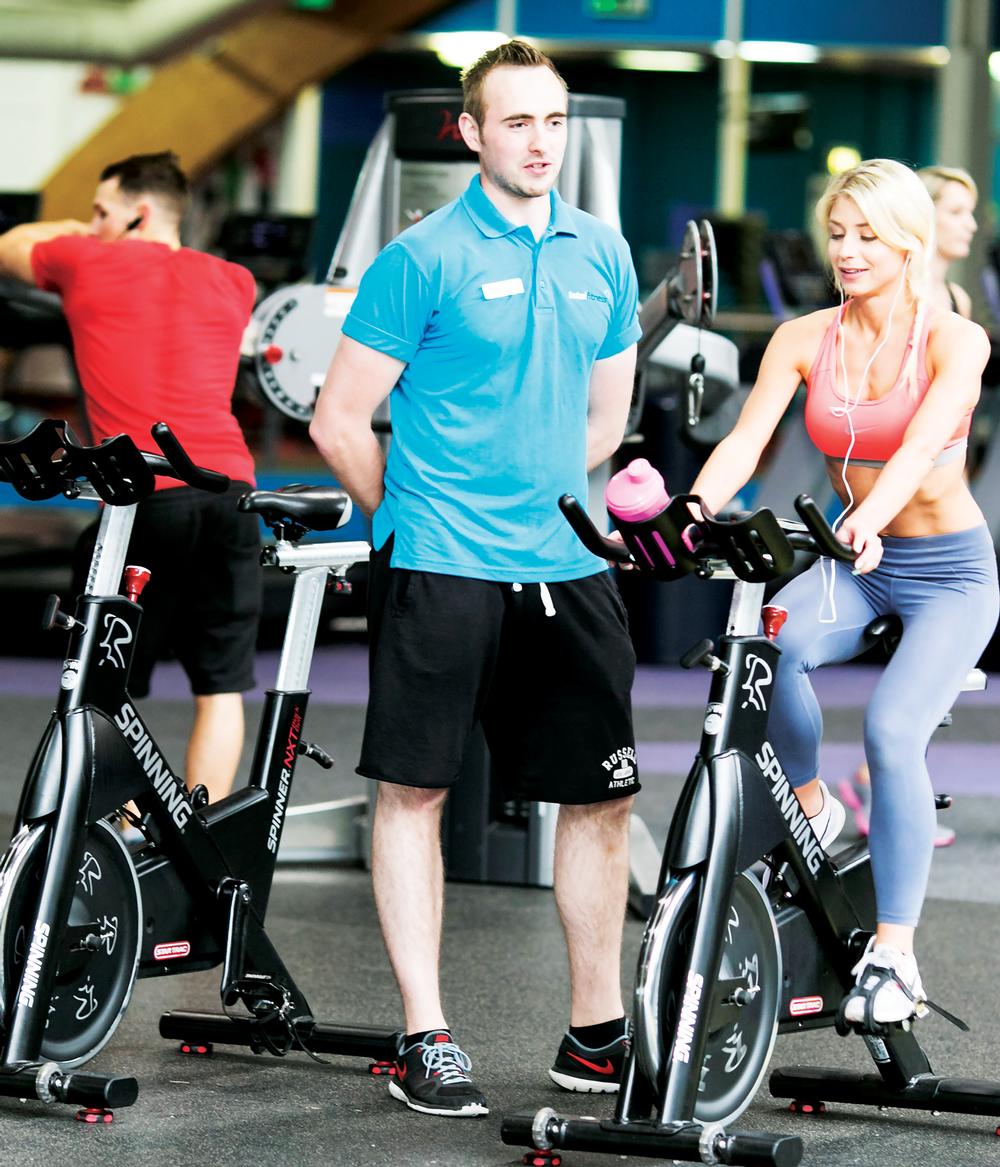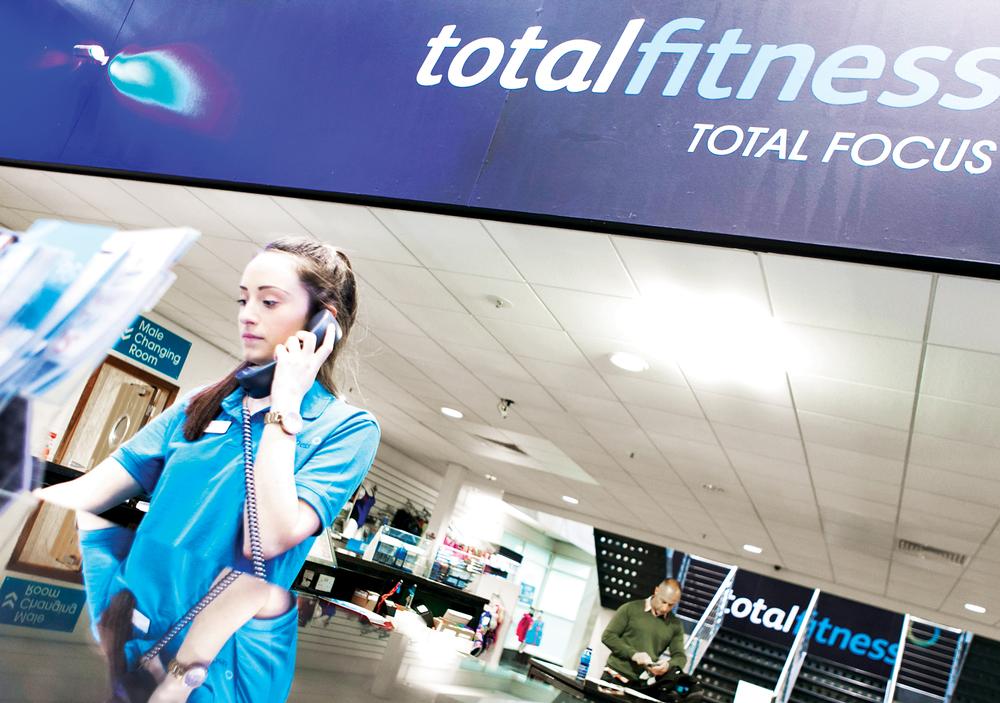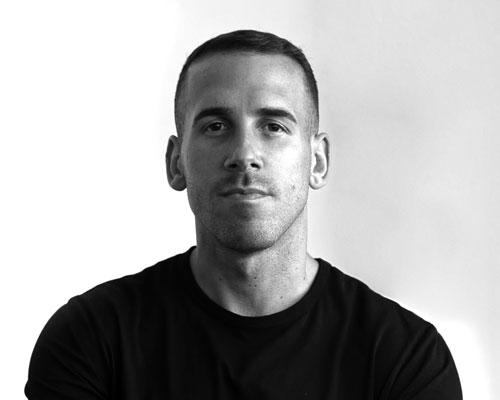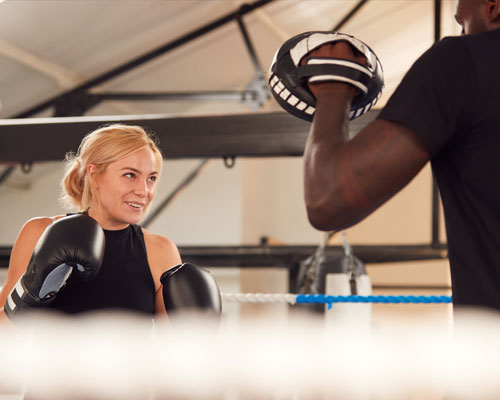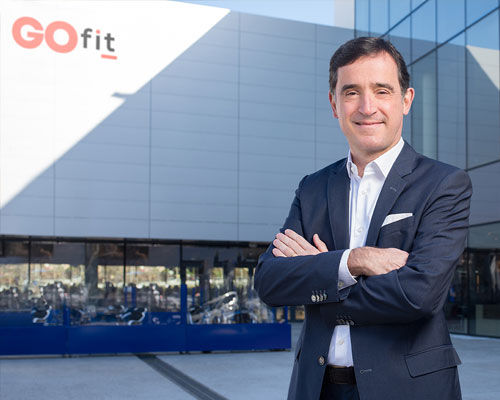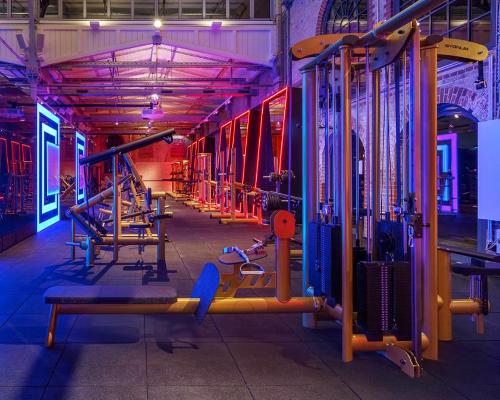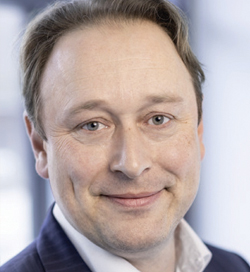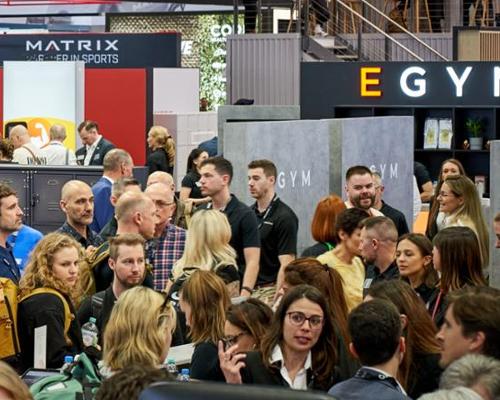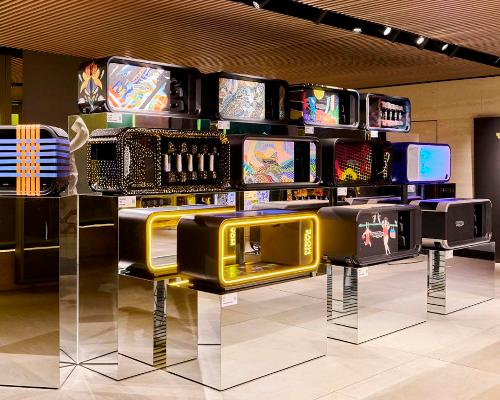features
Interview: Total transformation
Kate Cracknell speaks to the team responsible for the turnaround and future growth of the Total Fitness health club chain: CEO Richard Millman, turnaround expert Warwick Ley, and private equity investor Ray Stenton
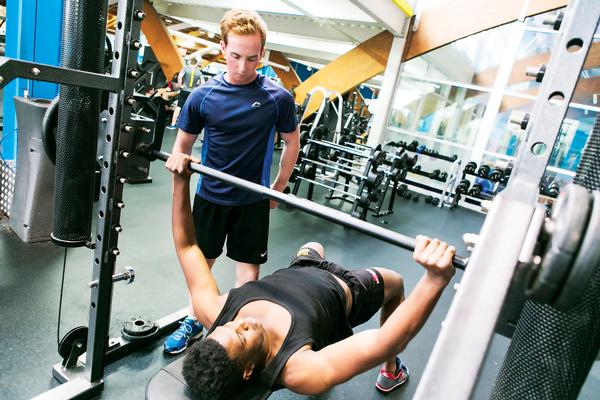
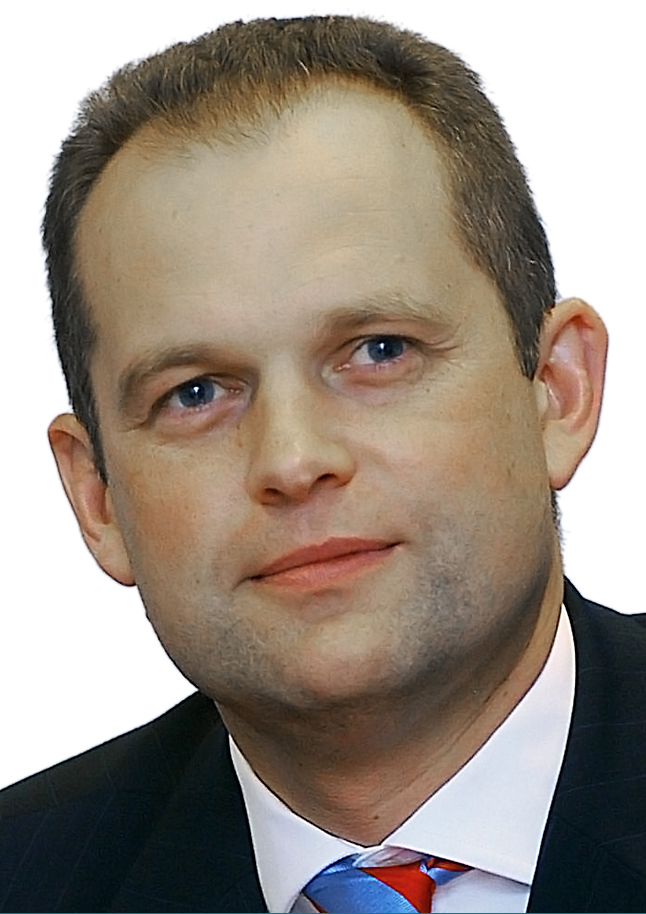
Richard Millman, CEO, Total Fitness
“Total Fitness was in a bad way by the end of 2012,” says Richard Millman, CEO of the health club chain since early 2013, very matter-of-factly. “It had been owned since 2010 by Barclays Bank and the Co-op Bank – a debt for equity swap – and the two banks had done a lot of the heavy lifting, including closing Total Fitness’ three clubs in Ireland and a further four sites in the UK to leave a core of 16 clubs. But the business was still in bad shape financially.
“At that point, Barclays invited turnaround specialist RooGreen Ventures to come on board, which it did in December 2012. RooGreen is essentially two guys – Warwick Ley and Brian Davidson – who I already knew, and they asked me to help with the due diligence. We then presented a business turnaround plan to the banks, and I officially came on board as Total Fitness CEO in February 2013.
“We then got stuck into the turnaround. Brian continued to work with the landlords, sorting the leaseholds – in fact, the landlords ended up investing £8.5m themselves towards the refurbishment of 14 of our 16 clubs. Warwick continued to look at the cash position of the business, and I worked on the operational side of things.
“Nine months later Brian stepped back, and in May 2013 we appointed Andy Mellor as FD, which meant Warwick could step into the role of chair.”
Refurbishing the estate
He continues: “The business used to bump along at the top of its overdraft limit on a continual basis, so we worked closely with suppliers to improve our cashflow. We also realised there was a lot of cash going out on non-key projects, so we reined those in and focused on growing the top line of the business: the 87 per cent of revenue that comes from membership subscriptions.
“We discussed putting prices up, but in the end decided against it; the members had been through a load of pain over recent years and wouldn’t have responded well to a rise. Instead we focused on growing the member base.
“We relaunched the business to potential new members, but we also approached our 300,000+ former members. They consistently told us ours were the best clubs they’d ever been members of: big gym floors so they never had to queue, a great group exercise timetable across three or four large studios, 25m pools, hydrotherapy pools, heat treatments, squash, big changing rooms, hundreds of car parking spaces… And they said they’d come back if we gave the clubs a bit of TLC.
“Our existing members said similar: they’d stay as long as we remained open, but we needed to invest in the clubs.
“So in mid-2013, we started a refurbishment project across the whole estate – not only the gym floors, with new functional zones, brand new Pulse CV and resistance, but also the studios, changing rooms and aquatic areas. We get a lot of customer feedback via Net Promoter Score (NPS) – thousands of customers a month – which has allowed us to set an agenda by club and in minute detail. NPS informs every decision we make across the business.
“It all links in to what I call the ‘Reasons to Believe’ model. For members who are wondering ‘Why should I stay, not leave – what are you going to do differently?’ we make sure we respond to all member feedback and we use all available channels to communicate the improvements coming through the pipeline. For former members, it’s ‘Why should I come back to you? What’s changed?’ – and we need to have those answers ready too.
“We’re about 60 per cent of the way through the refurb project now and should be finished by early 2017. In addition to the £8.5m from the landlords, we’ve invested £4m so far, with probably another £6m to go before the end of the project. Nobody had invested any money for a long time, so it’s a mammoth task.”
A growth curve
He continues: “But the business is now standing on its own two feet. By May 2015, membership was over 90,000 – up from 76,000 – and revenues have continued to rise since we started generating cash at the end of 2013. In April 2015, we also opened our 17th club in Wrexham – a £1m overhaul of one of the four UK Total Fitness sites that closed in 2011. It’s a beautiful club and is well ahead of target on membership sales.
“Meanwhile moving annual total NPS is now +5 per cent overall; some clubs that are further on in their refurbishments are as high as +28 per cent. When I joined the company, it was worse than minus 30 per cent. People are starting to believe.
“We’re now going to take it up a gear, working with a software provider called Reputation.com to transform our use of NPS. Rather than just managing negative feedback, we’ll be focusing on making positive feedback work harder for us via online reputation management. As part of that, we’ll be installing tablets all round the clubs so members can provide live NPS feedback of that day’s experience.
“So we don’t use the word ‘turnaround’ any more. We talk about growth, and we’ll certainly be looking for more opportunities to open new clubs. For now it will remain full-service clubs in the north of England, but I’d never say never about exploring new opportunities, either geographically or in terms of business model.”
Indeed, although unconfirmed by Total Fitness at this stage, reports suggest the operator is entering into a partnership with supermarket chain Asda to pilot – and if successful roll out – a functional training studio concept.?
Millman continues: “We’re certainly on a growth curve, and in fact that was what prompted the withdrawal of Barclays and Co-op: it marked a new phase of the business. They exited and we completed a management buy-out of the business in March 2015, backed by a £11.5m investment from NorthEdge Capital.”
People skills
So how will the business ensure it continues to flourish and retain members in a competitive marketplace?
“We’ve deployed a new people model,” explains Millman. “Previously it only really mattered what level of fitness qualification people had. We now focus on their interpersonal skills, how good they are at representing the brand, whether their own values fit with ours.
“In Wrexham, top to bottom, we’ve recruited on values and behaviour first, and functional skills second. Now, across all the other clubs and in head office, no-one – from receptionist to lifeguard to fitness manager to finance director – joins the business without going through a values and behaviour assessment day before we even talk to them about functional skills. Because ours aren’t self-service budget clubs – ours is a supported model. If we don’t have the best people delivering the best experiences, we may as well not bother.”
Power of partnership
“We’re also doing a lot of work on ensuring members see relevance in the whole of our offering,” Millman adds. “If we can do that, our membership fee – already good value at around £40 – becomes unbeatable.
“For example, we’re taking the dialogue from ‘swimming and swimming pools’ to ‘aquatic’. That can encompass swimming lessons for toddlers and children, but also aquatic fitness and aquatic training programmes. We’ve realised our pools are a big draw for triathlon training: individuals and local clubs use our facilities because we have at a minimum a six-lane, 25m pool in every club. They can combine that with dry-side training – six of our clubs have four-lane, 200m indoor running tracks.
“Partnerships are key to this initiative, because having recognised brands in-house brings something different and eye-catching to our offering. For example, we were originally running our own swimming lessons for children and toddlers, but we weren’t doing it very well. So in 2013 we teamed up with Water Babies, which now delivers all our toddler swimming. And we then did the same thing with the children’s swimming lessons, teaming up with Becky Adlington Swim Stars, and it’s absolutely flying. Becky even comes along now and then to teach a lesson herself.
“Our IT systems aren’t yet keeping up with where we’re driving the business, so I can’t give you actual participation figures, but I can go into any club any morning or evening and the number of people in the pools is significantly higher than it was two years ago.”
He continues: “Importantly, it isn’t just about playing catch-up to 2015, but also leveraging the opportunity to spring forward. We might do that ourselves, but equally we might find the right partner to do it with. Becky Adlington is a great example, but there are others: we’re trialling Beth Tweddle gymnastics classes for young children at two clubs. It’s going down a storm so we’ll probably roll it out.
“Those are just two children’s examples. In the head office club in Wilmslow, we’ve given 5,000sq ft to Royles, the leading high-end bike retailer in the north of England. It has a bike showroom and repair shop in our club. We’re going to start leveraging that in the club, with Royles-endorsed cycling training, Royles rides for members and so on. We also have a F&B partnership there that I believe leaves Costa or Starbucks for dead. And we’re now looking at potential partners to deliver value to the over-55s, who make up 27 per cent of membership.
“Partnerships will be key going forward. We might be 60 per cent through the refurb project, but we’re nowhere near 60 per cent through the opportunity of taking our offer and member experience to the next level.”
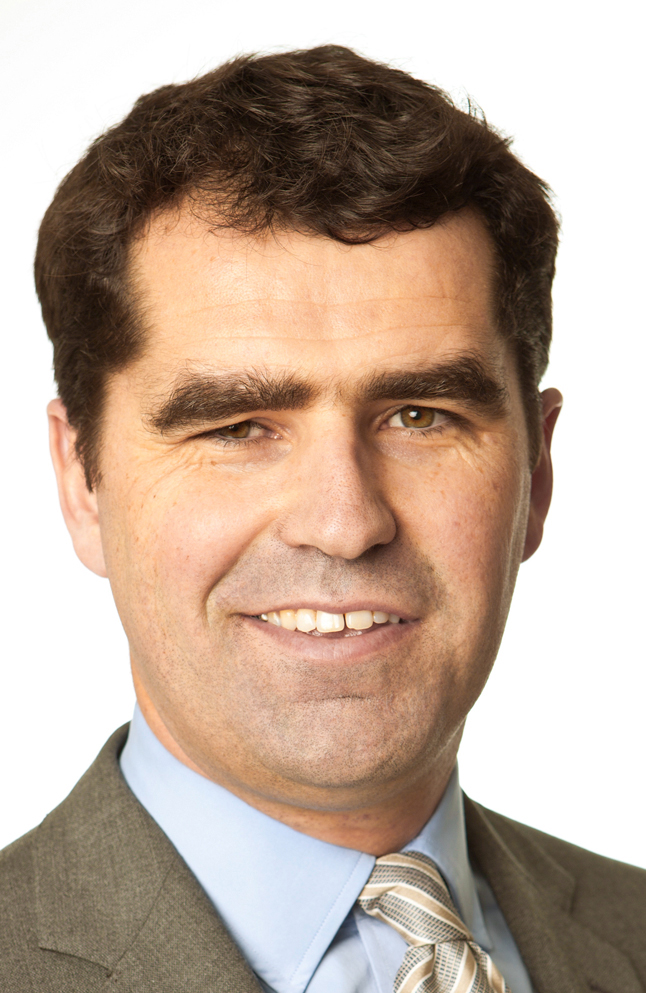
Warwick Ley, Partner, RooGreen Ventures & chair, Total Fitness
“I’m the mid-way point between Richard and Ray: 50 per cent operational and 50 per cent investor,” explains Warwick Ley, chair of Total Fitness and partner of RooGreen Ventures, the turnaround fund brought in by Total Fitness’ previous owners – Barclays Bank and Co-op Bank – to set the business back on track.
“Back in 2012, when we were asked by the banking syndicate to get involved, we – my colleague Brian Davidson and I – replaced the incumbent board. Our whole model for a turnaround is to get in there, get the sleeves rolled up, reset the strategy and often rebuild the management team – although at Total Fitness there are some cracking veterans who’ve been with us all the way, and I’m delighted for them and what it means to them.”
He continues: “I personally came up through the private equity and advisory route, spending many years in restructuring for one of the big four professional services firms, which is when I met Brian – we were advising on the management buy-out of a manufacturing business of which he was CEO.
“In 2005, a few of us broke away from Ernst & Young to set up a private equity house – a turnaround fund called Endless LLP. One of our investments was Crown Paint, and we parachuted Brian in as CEO; I was chair. We took the business from losing £20m a year to making £22m – this at the time Lehmans went bust, when the housing market collapsed and the paint market with it.
“Following on from that, Brian and I decided we’d like to do something together – Total Fitness-type deals – and we set up turnaround specialist RooGreen Ventures. We go in, we will in certain circumstances put in some cash ourselves, but fundamentally what we’re there to do is fix the company, get it back on track strategically, get its management structure back on track – and that means a lot of sleeves rolled up, heavy working for an initial six- to 12-month period. All being well we then ease back on our time involvement, take a shareholding in the business and drive it forward for growth.”
Worth fixing
In the case of Total Fitness, no money was invested upfront by RooGreen – “the equity in the business was worth nothing”. It was simply a case of Barclays and Co-op asking Ley and Davidson to help sort out the problems. The pair agreed but, stresses Ley: “I was very clear that, for us to get involved, we needed the banks to continue to support the business financially, and not for one moment did they step back from that responsibility. They’ve been a fundamental part of the turnaround.”
He continues: “When I originally took the call from Barclays, there were a few ‘we can’t tell you what the business is’ sort of conversations. I had a strong hunch it was Total Fitness, but I don’t mind admitting I hoped it wasn’t – there had been so much noise and negativity around the business.”
So what was it about Total Fitness that made them realise it could be turned around? “We have a few golden rules for any projects we take on. One is: do we think the business has an exciting future post-turnaround – does it have some strategic importance over the next three, five, 10 years? That was top of my list with Total Fitness, because I didn’t really have any prior gym experience – I’d just heard about their sort of model being dead thanks to the budget gyms.
“But I took a lot of encouragement from the fact that – in spite of a tough prior five or six years, with very little investment in the clubs, no focus on retention whatsoever, a lot of management change, really everything counting against it – the loyalty of the membership base was astounding. One in four members had been with their club for longer than five years, despite everything weighing against it.
“That was the killer point for me: I knew, if members were staying in spite of all that, there was something worth fixing.”
Beyond the club
And fix it they did, in conjunction with Richard Millman who they brought in as CEO: membership is up 14 per cent and the business is profitable again.
“One of the main reasons for Total Fitness’ downfall was its facilities: it had huge property costs, including big pools to maintain,” says Ley. “But that’s also one of the main reasons for its resurgence: the size and quality of the facilities is a huge differentiator for the business. A big part of the turnaround was renegotiating terms with the landlords, getting costs at more realistic levels.
“So now we have large clubs that are profitable, and where you get a huge amount for your money. We see David Lloyd as more of a like-for-like market peer than the budget gyms, except we’re half the price of David Lloyd: £40–£45 a month. In fact, the arrival of the budget gyms has just made Total Fitness more unique, because our segment of the market is less crowded now.
“So we offer great facilities with a great breadth of offering. However, without good people you’re nothing, and it’s our people who will really set us apart going forward. If I look at the turnaround from a people perspective, it’s inspiring to see the level of focus, commitment, enthusiasm and passion among the staff. Nevertheless, there’s still a long way to go.
“As part of that, we need to refine our customer service and member experience USPs: the way we communicate, how members are treated when they come in to the gym, how they’re treated outside the gym – how we interact with them there. Our digital strategy is pretty basic at the moment, but we have some exciting plans.
“We also want to go beyond bricks and mortar: we’re trying to get that magic dust to make us part of someone’s everyday life, wherever they are. That’s the vision.
“Because it can’t just be about clubs. There aren’t many 70,000–80,000sq ft sites in the north of England, so at some point over the next four or five years – other than picking up the odd gym here and there – we’ll reach maturity. We therefore have to look at how we’re going to generate revenue outside the 80,000sq ft gyms over the next five to 10 years.
“Effective turnaround is about having a five- or 10-year vision. There’s no point otherwise. Even if that’s outside of our investment timeline – which isn’t set in stone, incidentally – we have to think now about our growth story to pitch to the next owner, and we have to put the foundations in place to make that happen.”
Genuine partnership
That potential new owner is some way down the line though, with the latest change of hands only taking place at the end of March 2015: a management buyout, with Barclays and Co-op exiting the business and the trio of Millman, Ley and Davidson investing their own personal funds, alongside a reported £11.5m investment from private equity firm NorthEdge Capital – a private equity firm brought in by RooGreen specifically to drive growth.
Ley is quick to stress, however, that it will be measured growth: “It’s very easy to get giddy, but we have to make sure the house remains in order. That’s been a big cultural change and I’m very confident that, with Richard’s leadership and the structures we have in place, operational discipline will always be central to our DNA.”
Ley remains chair and shareholder of Total Fitness, with Millman as CEO. The two men – and to a lesser extent Davidson, who remains on the board as a silent investor – will now work closely with NorthEdge to take Total Fitness into the next phase of its life.
“The biggest mistake private equity guys and management teams make – and it happens a lot – is that they see it as ‘them and us’,” says Ley. “That’s a very unhealthy dynamic. It needs to be a genuine partnership, and I’m not being all fluffy with that word. That’s NorthEdge’s ethic and is the key reason I approached them.”
And Ley is, it seems, more than happy to remain active in that partnership: “I just love being involved in the business and I’m incredibly proud. I’m happy to admit it – I was so wrong back in 2012 when I hoped the project wouldn’t be Total Fitness.”
Ray Stenton,
Partner,
NorthEdge Capital & non-exec director, Total Fitness
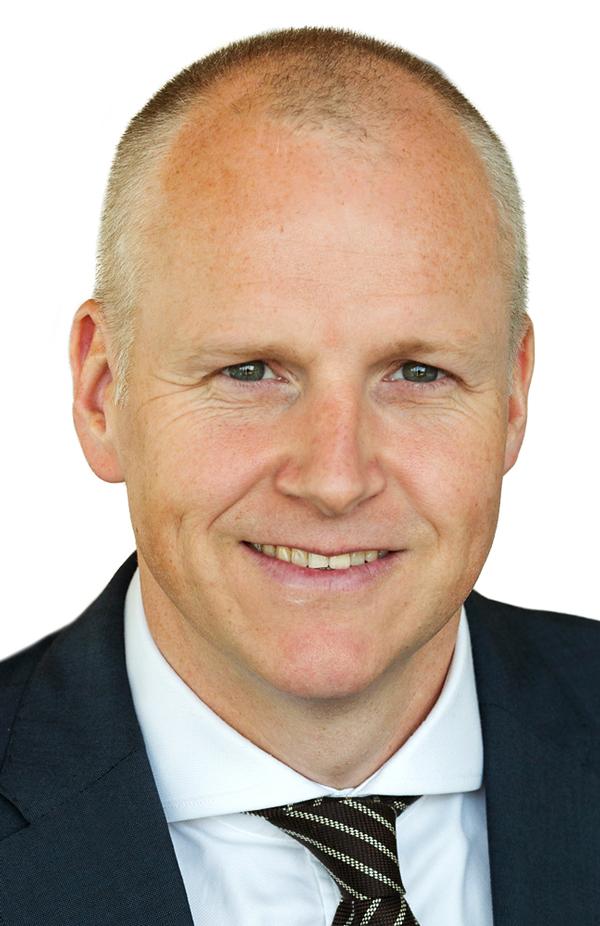
“Our investments are typically for three to five years, and in that timeframe I’d expect Total Fitness to have grown to 100,000 members,” says Ray Stenton, partner at NorthEdge Capital – the private equity firm brought in at the time of the Total Fitness MBO to help drive the new growth phase of the business. “There’ll also be at least one more full-service club and some other exciting, differentiated new formats too.
“Beyond our ownership, I’d expect there to be a more aggressive focus on opening new clubs and rolling out new formats. And the next owner will need to crack digital too, to really drive value. We’ll make some progress on that, but we won’t have all the answers during our ownership. It’s a huge opportunity though, and could be very interesting.”
NorthEdge is what Stenton calls a “generalist investor” whose model involves bringing broader business expertise to back management teams in delivering their plans. It focuses exclusively on northern-based businesses and has invested a reported £11.5m in Total Fitness – this in addition to the funds being invested by the management team – which Stenton sees as “an interesting growth opportunity”.
He elaborates: “People are getting more health-aware. At the same time the market is polarising into full-service versus self-service, and I believe Total Fitness has a unique offer within that: it’s at the top end in terms of its broad full-service proposition – not stuck in the squeezed mid-market – but its price point means it’s also high value.
“We need to invest in the facilities to ensure they’re at the standard we would wish them to be – we’ve already embarked on a significant CapEx project across the estate – but once that’s completed, we’ll absolutely be competing with the likes of David Lloyd rather than the budget operators.
“But it’s a very competitive market and we have to stay focused on the detail. Good facilities aren’t enough – you have to continually stimulate and innovate.”
Opportunistic growth
He continues: “With that in mind, our growth agenda is about looking at the business differently: investing in people, IT, facilities. The business has grown well with limited investment and there’s a real opportunity to build on that.
“There’ll be opportunistic new site openings based on acquisition – we’re looking at two or three possibilities at the moment. New builds aren’t on the immediate radar, although we might consider it were the right site to come up. But there are a number of former Total Fitness sites that were sold during the restructuring of the business, and they’re the most obvious things to look at if we can get them to work; the Wrexham re-opening was the first of those.
“We’re looking closely at our digital strategy too, and at new formats like the ‘pay as you go’ city centre boutique clubs and other standalone offerings. It’s a different market dynamic from London, where we’ve seen the majority of the boutique clubs opening, but we need to be clear what people want – we’re already seeing indoor cycling centres and boxing clubs in the north of England.
“In fact we’re doing a lot of work with NPS generally, so our investments are based on an understanding of what members really want. We’ll test various things to see what works and then roll the successful concepts out.”
"We’re looking at new formats, such as the ‘pay as you go’ city centre boutique clubs and other standalone offerings"
